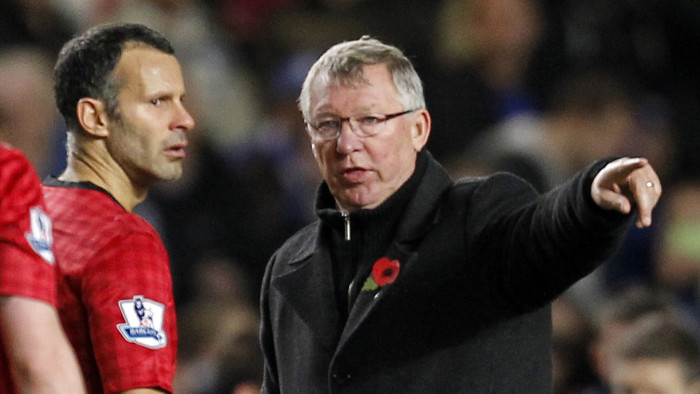Masters in Management: Management lessons from Sir Alex Ferguson

Roula Khalaf, Editor of the FT, selects her favourite stories in this weekly newsletter.
“For a player – and for any human being – there is nothing better than hearing ‘well done’. Those are the two best words ever invented in sports. You don’t need to use superlatives.”
This summer, 71-year-old Sir Alex Ferguson retired after 27 years as Manchester United’s manager, having won almost every honour in the club game: 13 English Premier League titles, five FA Cups, four League Cups and two Uefa European Champions League titles. Not bad for a working-class Scot who grew up in the Glasgow shipyards. While he was a good player, it was as a manager that he truly made his mark, taking United from its lowest point to the pinnacle of success. So what can we learn from his leadership style?
As an ardent United fan and keen observer of business leaders I have long admired Sir Alex. Three things were distinctive about his leadership: he had a talent for nurturing players; he developed the confidence of the club in his approach; and he maintained control over his squad.
Sir Alex demonstrated repeatedly that he could get the best out of his players. When he started at Old Trafford the squad was unfit and underperforming, with a renowned drinking culture. Over the years, he changed this culture to one in which players could flourish. He developed the training ground so that it had the best facilities and staff, applied insights from sports science, created intensive fitness sessions and personal training plans, and spent time talking with players to cultivate a “family feel”.
United became the place to shine as a top player, as well as the club for nascent talent to be nurtured. He was not afraid to say “well done” (his favourite phrase) to players, to push talented footballers hard, or to fine them for misdemeanours.
If tactics failed, he would lift the team with a half-time pep talk and urge them to push forward, over and over again, even into injury time – or “Fergie time” as pundits came to call it. In 1999, United won the Champions League final against German champions Bayern Munich with two goals scored in injury time, becoming the first club to win the “treble” of the European Cup, and domestic cup and league. And on the few occasions when this “never say die” attitude failed, he was not afraid to use one of his famous “hairdryer treatment” dressing downs to get the team back on track.
Sir Alex’s second ingredient was that he created a strong bond with those in charge, a trick he had learnt as manager at Aberdeen, and repeated with the United chief executive and the club’s US owners. When Sir Alex was unsuccessful in the early years, many clubs would have sought a replacement, but by getting the key people on side, Ferguson was able to weather storms. When success started to come, he was able to persuade the club to invest in players, support staff, the stadium and the training ground. Confidence also gave Sir Alex power over players in the dressing room, an advantage short-term managers lacked.
His third ingredient for success was wider and stronger control over his squad than many of his counterparts, which meant he could take a balanced longer-term view. He hired international talent judiciously while “growing his own” through an academy, and once said that his second main achievement after all the victories was the culture of youth development. He never allowed any player to think he was bigger than United.
Academy players such as Ryan Giggs, scouted at 13 and still playing for the club, trained with the seniors to cultivate a single-club culture. Successful youth development gave Sir Alex a competitive lever to keep even the most talented player acquisitions in place. He was able to repeatedly blend the two sides of the squad, buying and selling homegrown talent (such as David Beckham and Roy Keane) as well as superstars (such as Eric Cantona, Ruud van Nistelrooy, Cristiano Ronaldo and Jaap Stam).
The key to Sir Alex’s success as a football manager was the confidence he inculcated in the boardroom, and the upper hand he had in the training room. His magic ingredient was the virtuous circle that confidence and control gave him, which meant he could “refresh” the squad to go on and win again.
Nurturing people, instilling confidence, and maintaining control over precocious talent are not easy bedfellows in football, business, or indeed business schools. What we learn from Sir Alex is that these underplayed leadership skills are central to long-term organisational success.
Professor Ian Clarke is chair in strategic management and dean of the University of Edinburgh Business School
——————————————-
Letter in response to this article:
Celtic beat Manchester Utd by 32 years / From Mr Frank McCallum
Comments